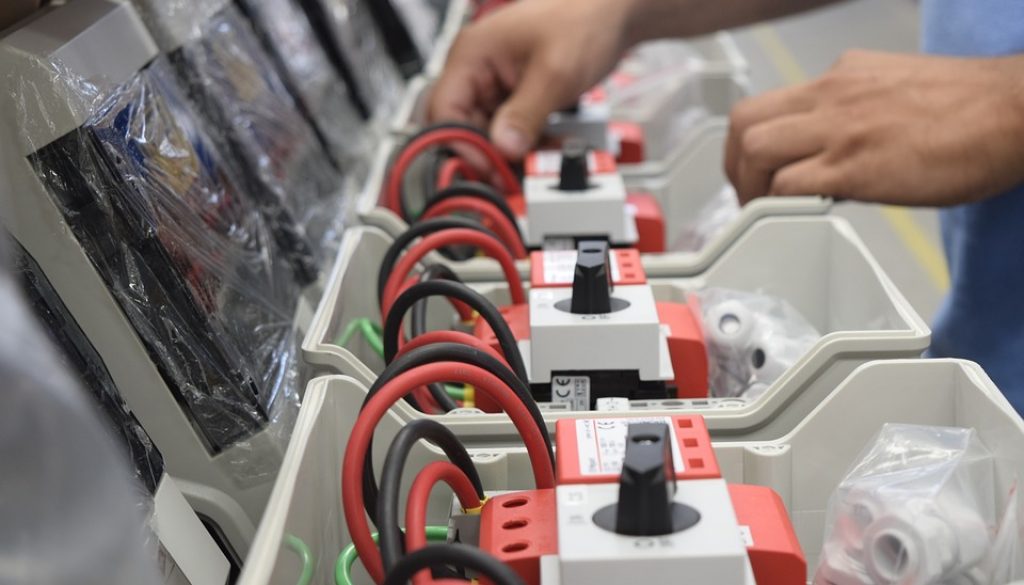Ten Errors to Avoid When Manufacturing in Mexico
Manufacturing in Mexico is the right move to make to positively impact a company’s bottom-line when some common errors are avoided.
A successful company that is manufacturing in Mexico is one that has efficient processes, effective quality systems, trained and productive personnel, reduced cycle times, controlled costs, as well as uses its material resources in a planned and intelligent manner. Ten errors that can be made by manufacturers in Mexico, and suggestions to overcome them, are discussed below.
Companies often make mistakes that inadvertently affect their productivity including the:
1. Unnecessary accumulation of inventory:
Companies that are manufacturing in Mexico hold three main types of inventory: raw materials and supplies, in-process products, and finished products. Generally speaking, the amount of these is greater than what the company needs. This not only creates risks of losses of the same inventory but also money. Manufacturers in Mexico that experience high levels of success keep all three types of inventories at the minimum required, based on their company’s size and sales.
2 Waste of large quantities of raw materials:
Although small amounts of raw materials will inevitably go unused during the production process, it is important to reduce the loss of materials by having firm control over the manufacturing processes that have been put in place. When manufacturing in Mexico, the loss of raw material can be minimized by reviewing production processes step by step. This will enable companies to measure how much raw material is being wasted and how much can be saved.
3. Waste of production time:
The main losses suffered by a company that is manufacturing in Mexico are those related to production time. Waste in this area is the result of a lack of planning in the area of processes. Failures such as not provisioning on time, not doing preventive maintenance on machinery, or failing to coordinate workers and the processes that they perform, resulting in downtimes, i.e., wasted time affecting compliance with agreed-upon customer delivery dates. The way to avoid this common error is to identify what is needed for the manufacturing process and the time that it takes to get it done. It is imperative that there is planning in place for each and every production step.
4. Lack of measurement of the key factors of productivity:
When manufacturing in Mexico, some of the most important factors of productivity include production times, energy and raw material consumption, percentage of machinery used, percentage of defective products and levels of customer satisfaction, among others. Companies that do not measure these factors are unable to identify the opportunities that exist to improve them. Successful companies in Mexico set indicators that allow them to have a baseline to improve productivity and, in turn, profitability.
5. Disconnection with suppliers:
A manufacturer in Mexico is not productive or competitive if its suppliers are not as well. Companies are often focused only upon what happens on their own production floors and are inattentive regarding their suppliers and their problems. This is often regardless of losses and rework that occurs. This error can be avoided by working hand in hand with suppliers to build good and communicative relationships. Doing so will lead to productive discussions that will result in the sourcing of higher quality products.
6. Implementation of processes without quality standards:
An error that is common to some companies is that they do not meet the requirements of the market of their product or products. Failures in this area can be due to a lack of imposition of quality standards during design and production. This can result in increased product defects or causes them to fail to perform the functions for which they were designed. A company that is successfully manufacturing in Mexico standardizes its processes and creates controls to verify that its standards are being met.
7. The utilization of misused or inefficient equipment:
When manufacturers do not have complete and thorough knowledge of the characteristics of their machines, they may end up using them poorly or inefficiently. They may even cause damage to them that is easily preventable. Falling pray to these pitfalls can result in the loss of money and time or high operating and energy consumption costs that decrease productivity. To get the most out of each piece of equipment, companies that are manufacturing in Mexico must train their staff on its proper handling.
8. The purchase of equipment that does not fully fit needs:
Sometimes companies erroneously make investments in machinery and equipment that does not meet the real needs and demands of their production processes. Such purchases result in inefficient investments that can generate problems that affect processes, costs and product quality. Before companies that are manufacturing in Mexico buy new machinery, they should make sure that equipment that is currently in use is functioning at full capacity. Further purchases should be made only when absolutely necessary.
9. The failure to measure customer satisfaction levels and complaints:
Sometimes companies fall into the trap of focusing almost entirely on the production and sale of their products. Companies that are manufacturing in Mexico should remember to make the effort to listen to the customer’s voice and to recognize how levels of satisfaction affect their loyalty and repeat purchases. It is important that manufacturers generate channels of communication with their customers that allow them to measure, maintain, and increase levels of satisfaction. Doing this will also enable manufacturers in Mexico to anticipate their customers’ demands.
10. Maintenance of products that are not profitable:
Companies sometimes maintain the production of goods and/or services that are inadvertently causing losses to the company. This is mainly because their market demand has declined, or their production costs have risen considerably. Those companies that are manufacturing in Mexico can avoid this error by performing a profitability analysis of each item that they produce. Doing this will reveal those products that truly give value to the company and will reduce the risk of losses.





